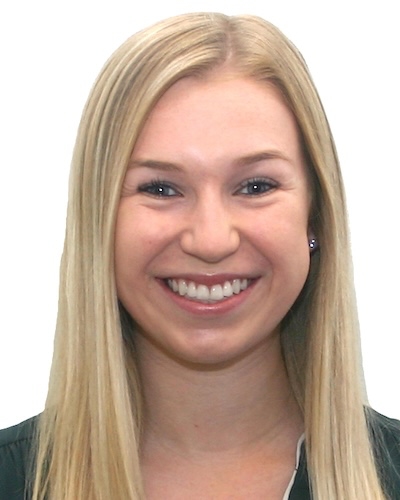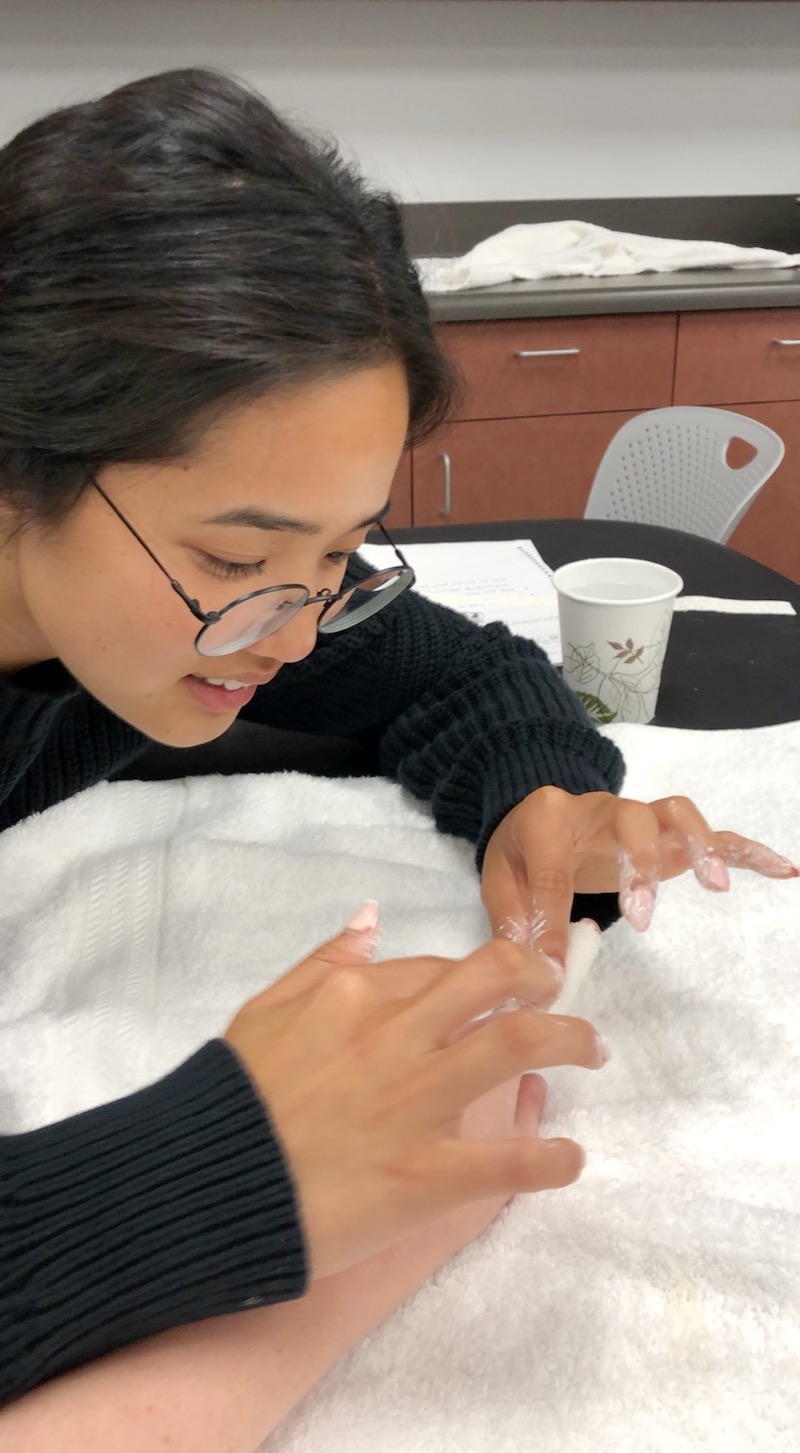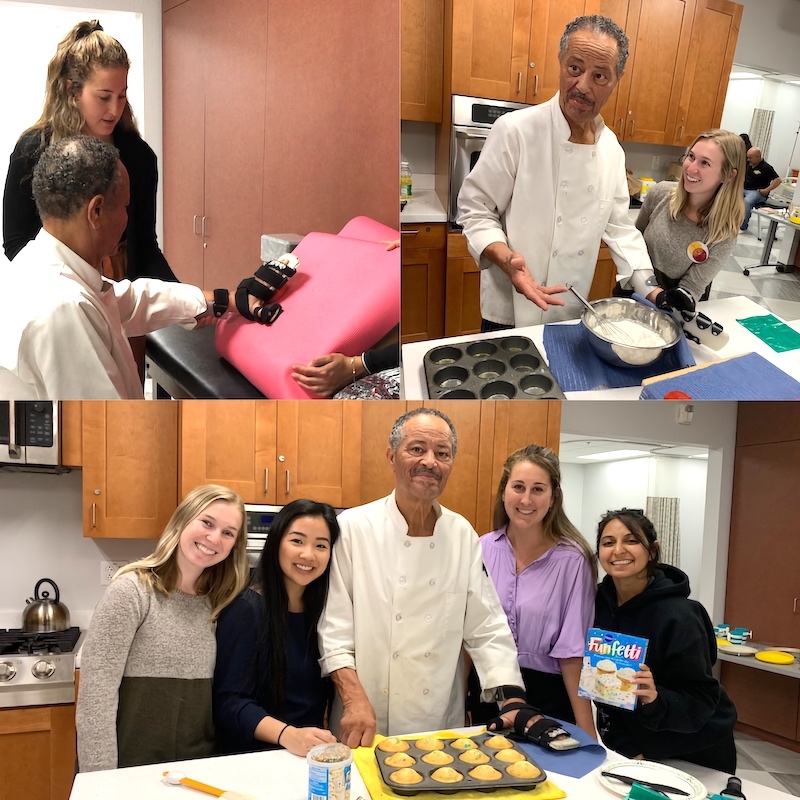Electives: OT Generalist to Specialist

April 17, 2019
by Jessica P.
In the spring semester of the second-year in the Master’s program, we get the opportunity to take elective courses. Like all OT programs, USC Chan prepares us to be OT generalists when we graduate, but we also get to take 12-14 units of elective coursework. These courses allow us to begin to focus in an area of interest, taking you from an OT generalist to specialist. Our division offers over 20 electives and also gives us the opportunity to take classes outside of the Chan division. For example, if you are interested in opening your own private practice you could take courses in the USC Marshall School of Business or if you are interested in health policy you could take courses in the USC Sol Price School of Public Policy.
I wanted to share a little more in-depth about the electives I chose to take this semester to give you a glimpse at all of the hands-on opportunities I’ve had throughout this semester.
OT 561: Occupational Therapy in Acute Care
In this class we have a lecture portion where we learn about the blend between a top-down occupation-based approach and bottom-up systems-based approach within the context of acute care. In addition to the class, we also get to complete a clinical experience portion at Keck Hospital of USC. At Keck, we get hands-on experience working with occupational therapists in a variety of settings. During my clinical experience, I was fortunate enough to see OTs working in various ICUs, neurology, cardiology, and orthopedics.
OT 573: Hand Rehabilitation
Throughout this course we learned how to blend the art and science of hand therapy in order to first be occupational therapists and then hand therapists. It was very hands-on, using case studies, splinting scenarios, and even a functional anatomy super bowl. Our professor taught us about addressing topics such as wound healing, scar management, physical agent modalities, splinting, peripheral nerve injuries, and arthritis — and most importantly, addressing these topics with an occupation-based approach. For my classmates who are interested in pursuing advanced practice in hands, the hours from this class counts towards their education hours!

One of my classmates, Sarah, practicing applying a plaster digital cast on my finger
OT 574: Enhancing Motor Control for Occupation
This course emphasizes using motor control techniques in order to increase engagement in occupations. For the first four weeks of the semester, we focused on learning basic mobilizations and facilitations on each other utilizing handling skills based on the Neurodevelopment Treatment Approach. After this, we had weekly two-hour treatment sessions with our patient models. These patient models are real people who have all experienced a stroke. Each week, we would develop and implement a treatment plan with our patients as well as give them homework to work on.

For our last session with Louis, he taught our group to make cupcakes because one of his goals is to be a chef instructor
My group’s patient, Louis, was one of the best teachers I have had in OT school. He allowed us to try out different treatment ideas and was always so motivated to work with us. I learned how to grade treatment sessions to the “just-right challenge” and always have back-up plans. Most importantly, Louis taught me about resilience and the difference that a positive attitude can make on the recovery process.
OT 575: Dysphagia Across the Lifespan
In dysphagia we learned about the anatomy and physiology of the structures involved in swallowing and how this impacts the occupation of eating. We also learned assessment and treatment strategies for patients of all ages in different settings. Through lectures, case studies, and hands-on techniques we learned about how occupational therapists can have a distinct role in approaching dysphagia management. One of my favorite lectures was on performing oral exams and we even got to test our classmates’ gag reflexes! Luckily, since I am interested in pursuing my advanced practice in dysphagia, this course counts towards 24 out of the 45 hours needed for specialization in California.
Throughout all of my classes in the program at USC there has been a strong emphasis on occupation-based approaches. After all occupation is in our job title! The electives I chose to take took it even further with demonstrating how to stay occupation-based in settings or with populations where a bottom-up, biomechanical model may be more typical. I feel so grateful to have had the opportunity to customize my coursework with electives this semester to prepare myself for the areas of practice and specialization I am interested in pursuing.
⋯
Next by tag Classes ⟩
⋯





